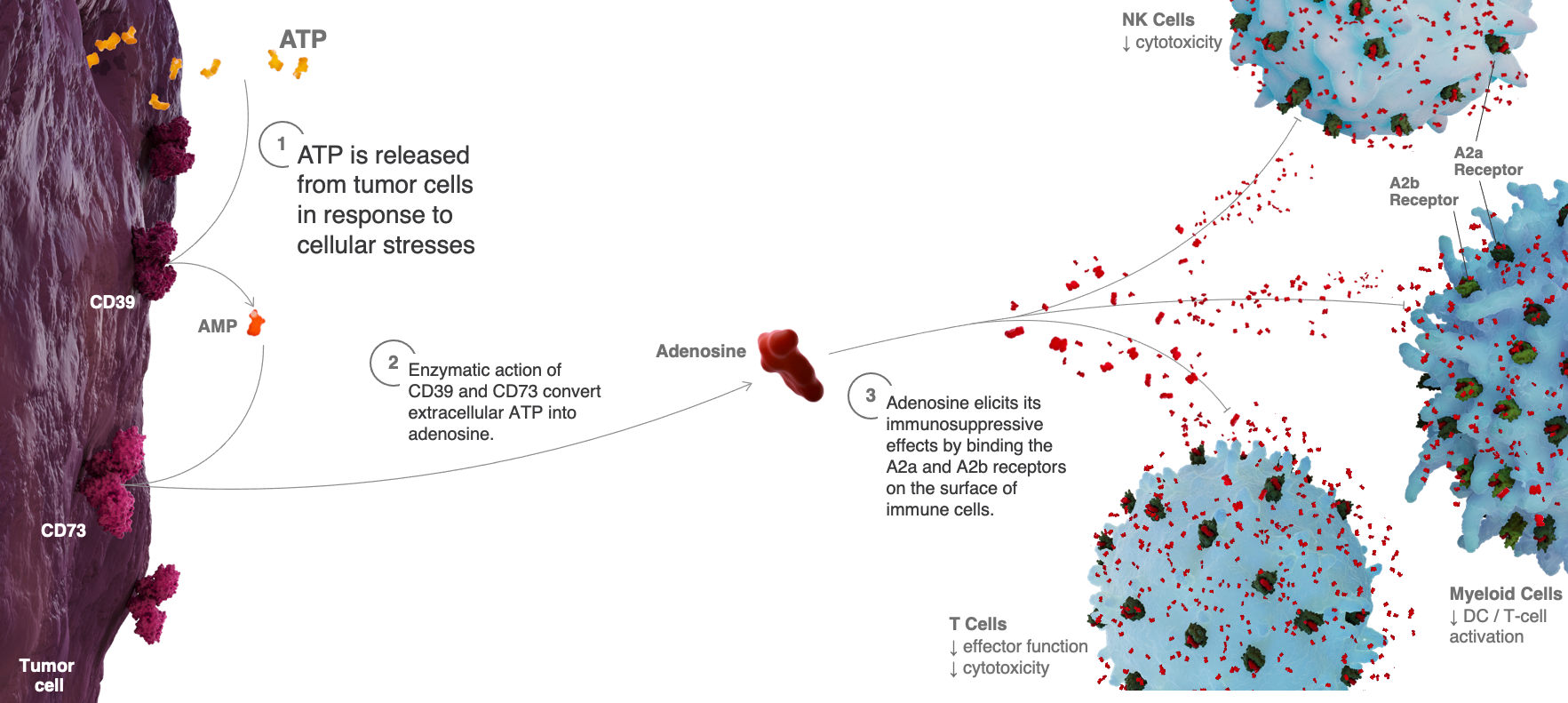





ADENOSINE AXIS
The adenosine axis serves as a counter to certain inflammatory responses, such as in wound healing, where it can help protect healthy tissues from an overreaction of the immune system. Cancer cells are thought to exploit this mechanism to protect against host antitumor immunity.

Adenosine elicits its immunosuppressive effects within tumors by binding and activating adenosine-specific receptors expressed on the surface of tumor-infiltrating immune cells.
Two receptors important in mediating the effect of adenosine are A2a, which is expressed on T and natural killer (NK) cells, and A2b, which is co-expressed with A2a on myeloid cells.
CD73 and CD39 are key enzymes involved in extracellular adenosine (eADO) production from ATP released by cancer cells into the tumor microenvironment.
Arcus is developing several investigational molecules that target biologic actions within the adenosine axis as potential new ways to treat cancer.
